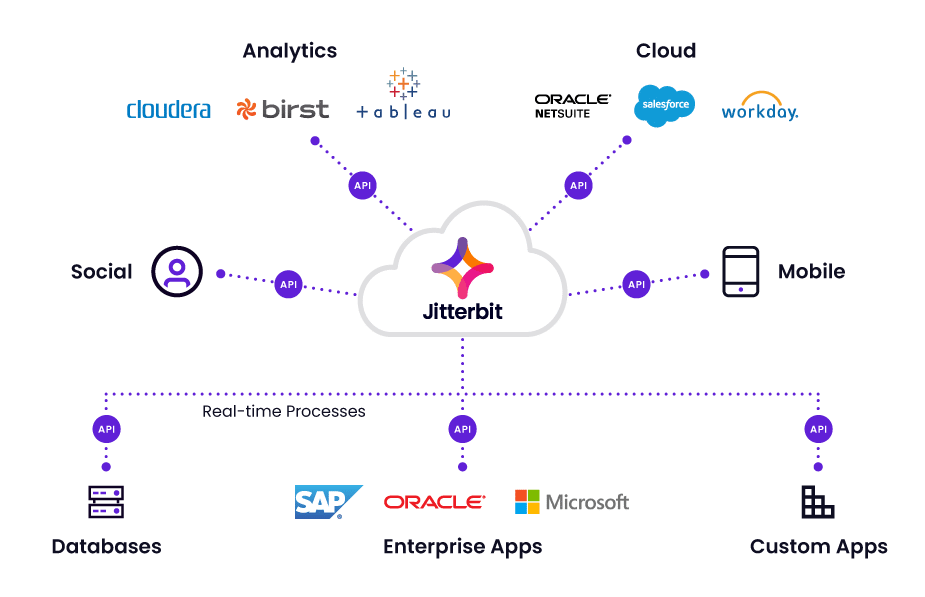Introduction
In today’s fast-paced digital landscape, businesses are increasingly relying on technology to streamline their operations and improve user experiences. One of the critical components that enable different software systems to communicate seamlessly is API Integration. By allowing applications to exchange data and services, API integration plays a vital role in modern software development, empowering businesses to create more robust, efficient, and scalable solutions.
In this article, we’ll delve into the world of API Integration, exploring its importance, benefits, and how it can be leveraged to drive business growth.
What is API Integration?
API (Application Programming Interface) integration is the process of connecting two or more software applications or systems via APIs to enable them to communicate and share data seamlessly. Essentially, an API acts as a bridge between different software components, allowing them to work together without requiring manual intervention.
API integrations enable applications to request data, process it, and send back responses in a structured format, making it easier for developers to build complex systems with multiple functionalities. Whether it’s integrating third-party services like payment gateways, social media platforms, or cloud storage systems, APIs help in enhancing the capabilities of an application by connecting it to external resources.
Why is API Integration Important?
1. Improved Efficiency and Productivity
API integration eliminates the need for manual data entry and ensures that different systems can work together automatically. This results in faster data processing, reducing human error and improving overall productivity. By integrating APIs, businesses can save time, reduce operational costs, and allow employees to focus on more strategic tasks.
2. Seamless User Experience
API integration improves the user experience by providing real-time data updates and enabling different software platforms to work together effortlessly. For instance, when an application integrates with a payment gateway API, users can make transactions securely without leaving the app. Such seamless interactions contribute to better customer satisfaction, driving user engagement and retention.
3. Scalability
API integration allows businesses to scale their operations easily. As your business grows, you can integrate new APIs to add features and functionality without needing to rebuild your entire system. This flexibility makes it easier to adapt to changing market demands and technological advancements, ensuring your business stays competitive in the long run.
4. Cost-Effectiveness
Integrating third-party services through APIs can be more cost-effective than building every feature from scratch. For example, rather than developing a custom payment processing system, businesses can integrate with established payment gateways like PayPal or Stripe. This not only saves development costs but also reduces the risk of errors and fraud associated with handling sensitive data.
5. Innovation and Flexibility
API integration fosters innovation by allowing businesses to experiment with new functionalities and services. With access to a wide range of APIs, developers can quickly integrate cutting-edge technologies such as AI, machine learning, and IoT into their applications. This fosters greater flexibility and allows businesses to stay ahead of the competition by adopting the latest technologies.
Common Use Cases for API Integration
1. Payment Processing
Payment gateways are one of the most common examples of API integrations. By integrating with payment systems like PayPal, Stripe, or Square, businesses can securely process online transactions. This integration simplifies payment workflows, improves transaction accuracy, and offers a convenient payment experience for users.
2. Social Media Integration
Many businesses integrate social media platforms like Facebook, Twitter, and Instagram into their applications to enable social login, content sharing, or data analytics. API integration with social media platforms allows businesses to reach a broader audience, enhance marketing efforts, and track user behavior.
3. Cloud Storage Solutions
Cloud storage APIs, such as those provided by Google Drive, Dropbox, and Amazon S3, allow applications to store and access data in the cloud. This integration ensures that businesses can manage large amounts of data efficiently, offering a secure and scalable solution without the need for physical storage infrastructure.
4. Mapping and Geolocation
Mapping and geolocation APIs, like Google Maps and Mapbox, allow businesses to integrate location-based services into their apps. This is particularly useful for applications in industries like logistics, transportation, and real estate, where users need to view locations, track deliveries, or find nearby services.
5. CRM and ERP Systems
API integration with Customer Relationship Management (CRM) and Enterprise Resource Planning (ERP) systems enables businesses to manage customer interactions, sales, and inventory more effectively. These integrations help streamline workflows, automate routine tasks, and ensure data consistency across departments.
Steps Involved in API Integration
1. Understand the Requirements
Before beginning the integration process, it is essential to define the goals and requirements. This includes identifying the systems that need to be integrated, the data that will be exchanged, and any potential security concerns. Understanding these requirements will ensure a smooth integration process.
2. Choose the Right API
Choosing the right API is crucial for successful integration. Developers need to evaluate the API documentation, security features, and compatibility with existing systems. Whether it’s a public or private API, it should align with the business needs and technological infrastructure.
3. Authentication and Security
API integration requires secure authentication mechanisms to protect data and prevent unauthorized access. Developers often use OAuth, API keys, or token-based authentication to ensure secure communication between systems.
4. Implement the Integration
The next step is the actual implementation of the API integration. Developers write the code that connects the two systems, ensuring that the API calls are made correctly and the data is exchanged securely. This phase also involves error handling to manage any issues that arise during the integration process.
5. Test and Monitor
Once the integration is complete, extensive testing is crucial to ensure that the systems are communicating as expected. This includes functional testing, performance testing, and security testing to identify and resolve any bugs. After deployment, continuous monitoring is necessary to ensure the API integration remains operational and performs optimally.
Benefits of Using Professional API Integration Services
While integrating APIs can seem like a straightforward process, it requires a deep understanding of both the technical and business aspects. Professional API integration services offer the expertise needed to implement integrations that are secure, scalable, and aligned with your business objectives. Here are some key benefits of opting for professional services:
- Expertise and Experience: API integration professionals bring years of experience in handling complex integrations, ensuring that your project is executed efficiently.
- Custom Solutions: Professional services can tailor API integrations to your specific business needs, offering bespoke solutions that optimize functionality and performance.
- Security and Compliance: API integration experts prioritize security and ensure that the integration meets industry standards and regulations.
- Ongoing Support: With professional services, you get continuous support and maintenance, ensuring that the API integration remains functional and up to date.
Conclusion
API integration has become a cornerstone of modern software development, offering businesses the flexibility, scalability, and efficiency needed to thrive in the digital age. By connecting disparate systems and enabling seamless data exchange, API integration enhances user experiences, reduces operational costs, and fosters innovation. Whether you’re looking to integrate payment systems, cloud storage, or social media platforms, API Integration provides the tools to enhance your business processes and stay ahead of the competition.
If you’re looking for expert API Integration services to enhance your software development projects, consider working with professionals who can help you implement robust, secure, and scalable integrations that align with your business goals.






More Stories
Dirt Work 101: Key Techniques for Site Preparation and Grading
The AI Engineer’s Routine: Driving Innovation Every Day
High-Demand Data Science Jobs Shaping the Future